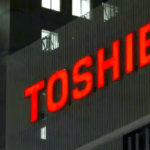GST on employer–employee financial transactions, even for subsidised services, could bring in a need to restructure salary packages.
Companies may soon change the salary structure of employees. This will happen due to GST on employer-to-employee supplies.
Companies may not only have to pay GST on the full value for services provided at concessional rates, but may have to cough up the tax even if no charge is recovered from the employees.
For instance, companies run subsidised canteens for their employees where there is a monetary transaction between the employee and employer. Now this transaction will be taxable. In such a situation, companies will stop charging for services rendered in a bid to save on that levy. Again, no company will want to bear the extra cost and the salary packages will be restructured to retain the same cost to the company.
Besides, GST treats the employer–employee relationship as one between two parties and, hence, these services will be liable to GST at whatever the applicable open market value is.
This development is in the wake of a recent judgement by the Authority for Advance Rulings (AAR) on canteen charges.
In March, Caltech Polymers Pvt. Ltd had approached AAR, a facilitation body to help taxpayers ascertain their income tax liability, and thereby avoid long-drawn and expensive litigation, asking whether the canteen service provided to its employees according to the provisions of the Factories Act, 1948, would come under GST. The Company had added that it was recovering the canteen-running expenses from its employees without any profit margin.
In addition, reimbursements on home rentals; telephone charges beyond a certain limit; medical premiums for extra coverage; gym use; uniforms or even re-issuing identity cards could be subjected to the new Goods and Services Tax.
All of these are bound to affect the salary packages as companies will try to keep their cost intact.
Value our content... contribute towards our growth. Even a small contribution a month would be of great help for us.
Since eight years, we have been serving the industry through daily news and stories. Our content is free for all and we plan to keep it that way.
Support HRKatha. Pay Here (All it takes is a minute)




































